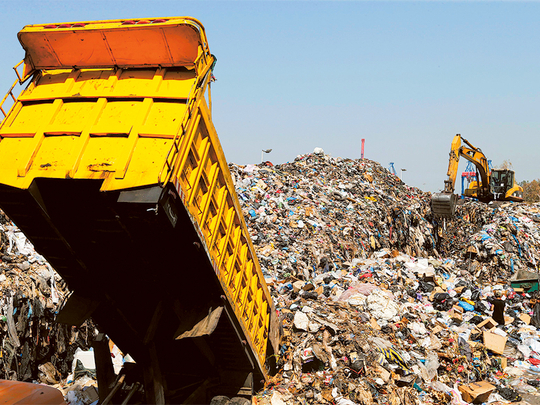
Washington: Youthful protesters took to the streets of Beirut in recent weeks to protest the lack of garbage collection. But the protests spread to other issues, such as corruption and the inability of Lebanon’s political parties to elect a president. 27-year-old Assad Thebian, one of the leading members of You Stink, as the movement is called, spoke about the protests last week in Beirut.
What kind of an impact do you think you’re having?
A lot of people are suddenly awake — they’re not afraid anymore of the warlords. Most importantly, they got united in the square where over 100,000 people were present on August 29. The people were all chanting that they are against the political regime that is governing now, against sectarianism. This is the first demonstration in a decade to reach these numbers, the first not funded by a political group.
We definitely would like to have this achievement translated into having a solution for the garbage issue and having new reforms in political life. This is what the people in power should be addressing after 100,000 turned out in the streets.
Do you think they will take the people into consideration?
With the garbage issue, I think they are trying to mix honey with poison. They formed a committee that came up with a proposed solution. The problem is that we don’t trust the people in power because the same proposition was made twice before.
Do you feel a lot of people are following your movement?
We are individuals who went down to the streets and protested the garbage issue and were beaten and arrested fiercely by the police. This made the people sympathise with us. We never claimed that people went down to the streets because of this person or that person. People went because they felt insulted as well — the garbage was in front of their houses, and they were fed up with the political groups. They really need something that is tangible. We know the garbage crisis is one manifestation of the system. If it is solved now, this does not guarantee we will not have a bigger crisis next month or next year. All the people in power now care only about how to divide the pie among themselves, how to have better incomes for themselves and their companies.
Doesn’t your movement also address corruption? You put up pictures of all the politicians, including Hezbollah, saying “enough.”
Yes, some of these groups had pictures of all the politicians, including Hassan Nasrallah, the secretary-general of Hezbollah. The slogan was “All of them means all of them,” which means that everyone is corrupted in Lebanon — all of the political parties are part of the corruption. Tens of thousands of Lebanese decided to demonstrate against corruption. This is new.
Now there is another kind of division: [those who believe in] the right of the Lebanese to have a state that provides them with basic needs electricity, garbage, transportation, education and health care — and those who don’t. The Lebanese are asking for their own rights. Since the end of the civil war in 1990 until now, there was no popular accountability. The electoral laws were designed for the political groups.
If you were outside the club, you couldn’t get into the parliament. Then in 2009, they decided not to have elections. Twice they re-extended the parliament for another four years without elections. This parliament will last until 2017. When people went to the streets, they said parliament is not doing its job. The Lebanese went into the streets because the democratic way is not working anymore.
Is your real aim to get rid of this government?
Our real goal is to have better governance. We want new blood, fresh people to go into the parliament and the government. We don’t want people to be elected according to their family names, their wealth or sectarianism. We want people elected according to programmes.
But what about Lebanon’s political foundation, which allocated positions based on religion? The president is a Maronite Christian; the speaker is a Shiite.
Yes, we should have a council that starts abolishing sectarianism until we reach a country where people are elected to office not according to sects.
Do you think your movement is growing in support?
It depends on our next moves. My opinion is we should escalate, we should hit the system harder.
Does that mean violence?
No, we have said from the beginning that we are a peaceful movement based on nonviolent actions, and that is what we are continuing to do.
How would you like to see the country change?
I would love to have better opportunities in education and health care. I would like to find a job that I can get because I am qualified, not because of my connections — to live in a country where I am able to express my opinions without being threatened or beaten.
Is there anybody you would like to see in a new government?
Yes, I would like a lot of the people who are with us on the streets to be in the government.
Do you think change will take time?
It will take a long time, definitely. Change doesn’t happen from one night to another. One thing you will notice about the demonstrations is the age of the protesters. You can find people from age 13 to 30. They are young people dreaming of a better future.











